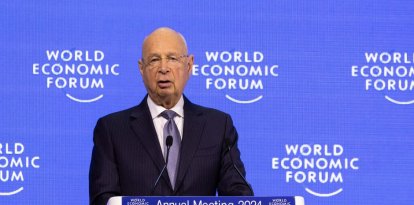Net-zero emissions: the UN's utopian plan clashes with reality and falls apart
The organization has already pointed out that the steps to meet the final goal are not being fulfilled. Moreover, the possible new exit of the United States from the Paris Agreement increases this concern within the organization.

António Guterres, UN secretary general.
The United Nations (UN), based on its extreme concern about climate change, established a series of objectives such as "substantially reduce greenhouse gas emissions to limit global temperature rise and to review countries' commitments to the environment every five years," as well as committing to "provide financing to developing countries" to enable them to carry out these measures and meet the goal of net zero emissions. This last point is the central debate at the COP29 being held in Baku, Azerbaijan.
"The science is clear: to avoid the most negative impacts of climate change, emissions need to be cut nearly in half by 2030 and reach net zero by 2050." That is, to produce an absolute disappearance of any greenhouse gas emissions starting within a quarter of a century and prevent global warming from exceeding 1.5 °C. That is the utopian objective of the UN: a goal that its members agreed to in 2015 in France and signed half a year later through the so-called Paris Agreement.
The "duty" of countries and companies
The organization is certain that the transition to a world without greenhouse gases represents "one of the greatest challenges humanity has ever faced." To this end, it puts unrelenting pressure on governments to legislate with policies linked to net zero emissions and to integrate them into society.
Apart from the member countries, around 3,000 companies around the world - most of them from the countries with the highest carbon emission rates - agreed and adhered to the UN guidelines, incorporating into their structure all kinds of policies and resources to comply with this duty. Before, it was not common for companies to have a section in their structure dedicated exclusively to measures related to climate change. Now, it is mandatory.
"Governments bear the greatest responsibility for the transition to net-zero emissions by mid-century. But companies, investors, cities, states and regions also have to deliver on their net-zero emissions pledges," the UN wrote. "Non-state entities must have absolute emissions reduction targets in the short, medium and long term."
The UN has an outline in which it drew the steps that would be followed from the time the Paris Agreement was initiated in 2015 - where the measures to be taken were established - until 2050, the year in which "the transition to net-zero emissions must be complete."
The UN, alarmed that objectives are not being met
Within this framework, the penultimate step are the goals to be achieved between 2030 and 2035: a reduction of 42% and 57% of emissions in each of those years and ensuring that global warming does not exceed 1.5 °C. Objectives that are not being met - and are beginning to become utopian - a situation that is becoming increasingly worrying for the UN.
"It is still technically possible to reach the goal of limiting global warming to 1.5°C, but a massive global mobilization led by the G20 is required to reduce all greenhouse gas emissions. If we do not improve existing policies, the world will reach a catastrophic temperature increase of up to 3.1 °C. Current commitments with a 2030 deadline are not being met; even if they were, global temperature rise would only be limited to between 2.6 and 2.8 °C," the United Nations Environment Programme (UNEP) said in a statement issued in October.
"Climate crunch time is here. We need global mobilization on a scale and pace never seen before, starting right now, before the next round of climate pledges. Or the 1.5°C goal will soon be dead and well below 2°C will take its place in the intensive care unit," said Inger Andersen, executive director of UNEP.
The US and its possible new exit from the Paris Agreement
The Paris Agreement was signed a year before Barack Obama left the White House. The former president signed it to bring the United States into line with the UN's climate doctrine. But when his presidency term ended, his successor, Donald Trump, decided to pull the country out of the treaty for being "very unfair" and wanting to "kill the American economy."
Joe Biden ordered the United States to rejoin the treaty, following the justifications given at the time by Obama. But the Biden-Harris administration has just suffered a resounding electoral defeat against Trump, and rumors have surfaced about the country's exit from the Paris Agreement once again, which would put the UN in check.
RECOMMENDATION





















